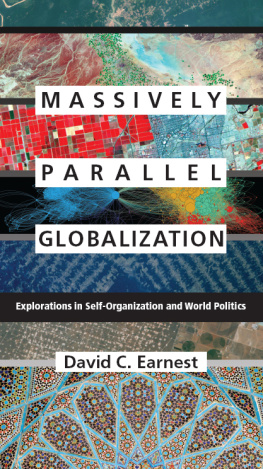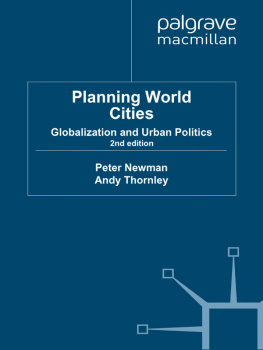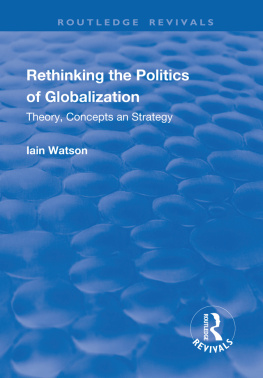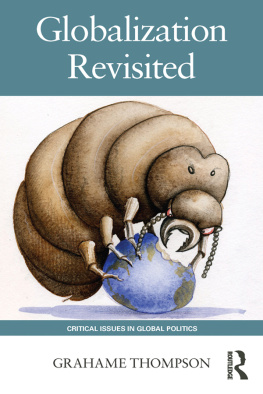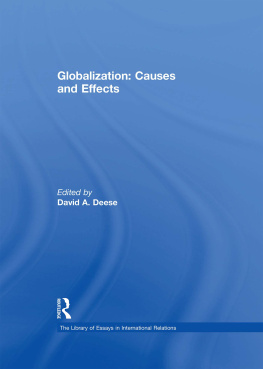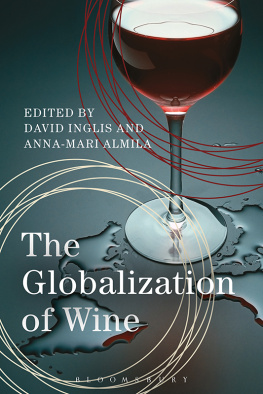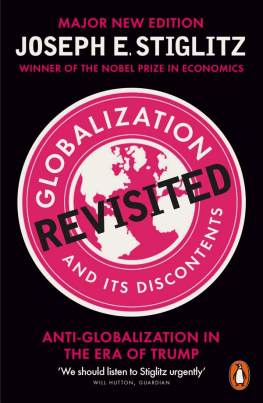Published by
STATE UNIVERSITY OF NEW YORK PRESS, ALBANY
2015 State University of New York
All rights reserved
Printed in the United States of America
No part of this book may be used or reproduced in any manner whatsoever without written permission. No part of this book may be stored in a retrieval system or transmitted in any form or by any means including electronic, electrostatic, magnetic tape, mechanical, photocopying, recording, or otherwise without the prior permission in writing of the publisher.
For information, contact
State University of New York Press, Albany, NY
www.sunypress.edu
Production, Laurie D. Searl
Marketing, Anne M. Valentine
Library of Congress Cataloging-in-Publication Data
Earnest, David C.
Massively parallel globalization : explorations in self-organization and world politics / David C. Earnest.
pages cm. (SUNY series, James N. Rosenau series in global politics)
Includes bibliographical references and index.
ISBN 978-1-4384-5661-4 (hardcover : alk. paper)
ISBN 978-1-4384-5660-7 (pbk. : alk. paper)
ISBN 978-1-4384-5662-1 (e-book)
1. Political sociology. 2. Social networksPolitical aspects. 3. GlobalizationPolitical aspects. 4. World politics21st century. I. Title.
JA76.E28 2015
306.2dc23 | 2014027595 |
10 9 8 7 6 5 4 3 2 1
To Jim, Simon, Marty, and BillWe have to look for power sources here, and distribution networks we were never taught, routes of power our teachers never imagined, or were encouraged to avoid we have to find meters whose scales are unknown in the world, draw our own schematics, getting feedback, making connections, reducing the error, trying to learn the real function
Thomas Pynchon, Gravitys Rainbow
ACKNOWLEDGMENTS
This book seeks to explain self-organization in world politics. Regrettably, book projects do not self-organize, yet one could argue that authors receive too much of the credit for what is, in the end, the enterprise of a community of scholars. Research itself is a complex adaptive social system, in which innumerable actors contribute in small yet important ways that defy easy measurement or attribution. Nevertheless, I wish to acknowledge the many colleagues and friendsa massively parallel community, if you willto whom I have incurred numerous intellectual and practical debts.
The earliest thoughts about this project originated at the 2009 annual convention of the American Political Science Association. My good friend Matthew J. Hoffmann of the University of Toronto invited me to contribute a paper to a panel tasked with Understanding a Complex World: Complexity Theory and Political Science. As chair of the panel, Matt helped me formulate my thinking about the relationship between complex systems theory and network theory. Thomas F. Homer-Dixon, Ian S. Lustick, and Kenneth W. Kollman, the panels other participants, provided useful comments and suggestionsKen Kollman in particular encouraged me to develop my argument about the relationship between game theory and agent-based modeling. Subsequent revisions of what became the first two chapters of this book benefited from the criticism and attention to detail of colleagues at the George Washington University. In particular, I thank Professor Susan Sell, Professor James Lebovic, and doctoral candidate Miles Townes.
At my home institution of Old Dominion University, several of my colleagues in the Department of Political Science & Geography and the Graduate Program in International Studies read and commented on different portions of the manuscript. Simon Serfaty in particular carefully read and reread my introductory chapter, and offered words of patient support as the manuscript worked its way through a lengthy gestation. Kurt Taylor Gaubatz read early versions of respectively. The innate curiosity of Christopher Ray, an MA student who volunteered to read my first chapters and who provided trenchant commentary, motivated me to write and argue with the passion of my younger days. Erika Frydenlund, a doctoral candidate at ODU, possesses a natural understanding of complex systems that through the years she has generously shared to correct my misunderstandings.
Associate Professor Emilian Kavalski, then of the University of Western Sydney and now of Australian Catholic University, introduced me to a vibrant community of complexity researchers when he invited me to present a paper to a workshop sponsored by the Academy of the Social Sciences in Australia. The spirited debate among the workshops participants informed much of the analysis that now appears in unfailingly courteous and encouraging one. In general, Sydneys community of innovative complexity scholars provided me with the opportunities for creative exchange and mutual support that any book project requires.
My wife Carla and my son Zach endured this manuscripts long incubation with patience and good humor. I am grateful for their unqualified encouragement particularly when I feared the manuscript would never be published.
An earlier version of was originally published in International Studies Quarterly 52, 2 (June 2008). I thank John Wiley and Sons, the publishers of ISQ, for permission to adapt portions of this article for this book. I also thank three anonymous referees for their careful evaluation of the manuscript. I am solely responsible for any errors in the manuscript.
Finally, the editorial staff at the State University of New York Press has provided superb support throughout the production of this manuscript. Michael Rinella is an exceptional acquisition editor who has assembled a compelling list of complexity-related titles, to which I am honored to contribute. Rafael Chaiken answers my tedious queries with patience and good humor. Laurie Searl has adroitly supervised the production process; I thank her as well for creating the beautiful cover art. Finally, I thank Anne Valentine for her thoughtful promotion and marketing of the book. To the entire SUNY Press staff I offer my thanks for their patience whenever I have been tardy in responding to e-mails.
As I argue in the next chapter, in complex adaptive social systems actors often replicate the successful strategies of others. So it is in academia, though I am a poor mimic of the four scholars whom I am privileged to call my mentors. The late Professor James N. Rosenau of the George Washington University profoundly shaped my scholarship. Not only did he introduce me to both globalization theory and complex systems theory, but he also encouraged me to eschew disciplinary conventions and become an intellectual explorer and integrator as much as a discoverer. Professor Martha Finnemore, also of GWU, demonstrated to me the inseparable connection between graduate instruction and creative research. Eminent Scholar Simon Serfaty, my colleague at ODU, has suffered through my excessive enthusiasms and has patiently taught me how to contribute to the intellectual vibrancy of a department and university. He also has taught me how opportunities outside of the walls of academia contribute to ones intellectual rejuvenation. Finally, Dr. William J. Taylor Jr., formerly the vice president of the Center for Strategic & International Studies in Washington, D.C., was my first mentor. When I was a young researcher in the mid-1990s, Bill taught me not only how to be a professional but how to make mistakeshow to learn and grow from them, and to find in them the kernel of opportunity. In the terms of complex systems theory, in my scholarship and teaching I seek to conserve the strategies that my mentors have taught me. In human terms, with a gratitude that defies words I thank them for their investment in and care for me. My dedication of this book to Jim, Simon, Marty, and Bill is, I believe, the highest expression of thanks one friend can offer another.

